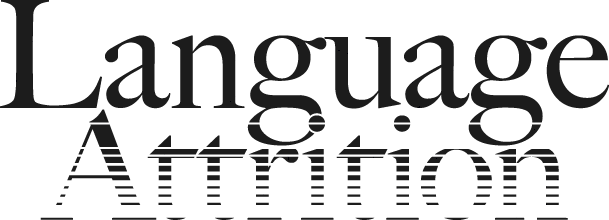 When I moved to the Netherlands a long time ago (I was 33 years old at the time), I was determined to learn Dutch quickly. I did not, of course, expect to become perfect – I knew I would occasionally fumble for words, my grammar would at times be erratic, and many (if not most) conversations with strangers would quickly lead up to the inevitable question “Where do you come from?” This, after all, is what usually happens when you learn a new language later in life – and tons and tons of research are there to support this.
When I moved to the Netherlands a long time ago (I was 33 years old at the time), I was determined to learn Dutch quickly. I did not, of course, expect to become perfect – I knew I would occasionally fumble for words, my grammar would at times be erratic, and many (if not most) conversations with strangers would quickly lead up to the inevitable question “Where do you come from?” This, after all, is what usually happens when you learn a new language later in life – and tons and tons of research are there to support this.
 What I did not expect was for the same things to happen to my native German.
What I did not expect was for the same things to happen to my native German.
People who spend extended periods abroad, learning and speaking another language (second language, or L2), will almost inevitably experience some kinds of problems with their native language (first language, or L1). These problems may include any or all of the following:
- problems remembering some words, being ‘blocked’ by a word from the other language and unable to retrieve the native one
- becoming hesitant and disfluent, using a lot of pauses, ‘erm’ and ‘uhm’s, repetitions and self-corrections
 using odd expressions and collocations, e.g. ‘to make a photograph’ instead of ‘to take a photograph’
using odd expressions and collocations, e.g. ‘to make a photograph’ instead of ‘to take a photograph’- developing a foreign accent
- coming to feel like a foreigner in your own mother tongue
This process, which is called “language attrition”, is very common. Despite this, it is usually both unexpected and deeply upsetting, and the research on it is very sparse as compared with the vast field of research on second language development. For these reasons, attriters often feel that they are alone, unique – and, somehow, deviant.
Don’t worry: you are not.
